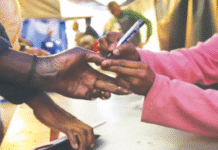International Day of Rural Women
The real heroes behind rural development

She is the first to wake up, and after finishing all her daily chores, with little time for rest or recreation, she is the last to go to bed and yet her husband will say: “my wife does not work.” Who is she? She is the Rural Woman of Bangladesh. In spite of all the gains women have made, rural women lag behind in every indicator of human development.
October 15 is the UN’s International Day of Rural Women. The first Rural Women Day was observed on October 15, 2008 after a General Assembly resolution on December 18, 2007, in recognition of “the critical role and contribution of rural women in promoting agricultural and rural development, improving food security and eradicating rural poverty.” This year’s theme for the day is “Rural women and girls building climate resilience” as an outcome of the UN Climate Action Summit. The theme is significant given the challenges and impending crisis of climate change, and it reminds us that a sustainable future for the world is not possible without the contributions of rural women and girls.
The Rural Women Day is celebrated to recognise their contribution in all its dimensions, evaluate their work and give them the honour and dignity that they rightly deserve.
Globally, the scenario of rural women is not encouraging. Women produce 60-80 percent of basic foodstuffs in sub-Saharan Africa and the Caribbean and are involved in over 50 percent of the labour in intensive rice cultivation in Asia. They head 60 percent of households in many regions. They carry 80 percent of household water. In spite of these figures, 500 million women in the world live below the poverty line in rural areas.
In Bangladesh, women’s participation in agriculture has grown exponentially during the past 15 years. Rural women play a vital role in a wide range of income-generating activities through agriculture, which include post-harvesting, cow fattening and milking, goat farming, poultry rearing, etc. Women also play a key role in home gardening and vegetable growing. Over and above their domestic work, rural women have always played an active role in ensuring household food security. They not only ensure the protein supply of the family by rearing livestock or poultry, but also contribute to household diet by growing various vegetables and fruits in homestead gardens. Farm activities in the homesteads, ranging from selection of seed to harvesting and storing of crops, are predominantly managed by women. According to an estimate, women contribute 25-50 percent of household income in rural families.
Unfortunately, there is yet to be a formal recognition of rural women’s work or economic contribution. Efforts by a number of organisations to bring all of women’s unpaid work, which is both productive and reproductive, into national accounting have not been successful so far. The System of National Accounts (SNA) does not allow for non-market products to be counted and included into the GDP. However, this work is ongoing. Policy advocacy, mobilisation followed up by well-researched empirical evidence will hopefully convince the policymakers to take note of this anomaly and devise a system that will accord formal recognition to the contribution of rural women.
Besides agriculture and unpaid care work, rural women and girls play a vital role in land and natural resource management. Women also collect biomass fuels, manually process foodstuffs, and pump water; 80 percent of households without piped water rely on women and girls for water collection. There is no doubt that rural women are at the forefront of the battle when natural resources and agriculture are threatened. For example, a quarter of the total damage and loss resulting from climate-related disasters from 2006 to 2016 was faced by the agricultural sector in developing countries, and this significantly impacted rural women and girls’ food security and productive potential. Women are more likely to die during most climate-related disasters and face greater constraints in accessing natural resources like land and water. Climate change exacerbates existing inequalities, potentially leaving rural women and girls further behind.
One of the most effective ways to achieve progress on the threats posed by climate change is to address gender inequality. Research shows that empowered women with decision-making ability have greater capacity to respond to climate change; they play important roles in adopting low-carbon technologies, spreading knowledge about climate change, and urging action. Adopting gender-responsive climate policies and programmes and promoting women’s leadership in climate action are thus key to reducing the harmful effects of global warming.
In the last 20 years, women in Bangladesh have made huge progress in terms of economic, social and political empowerment. However, it must be remembered that women are not a homogenous group. There are differences in terms of class, ethnicity, and level of education. And of course, there are fewer options for women living in rural areas to take advantage of technologies, income opportunities, employment, etc. However, rural women have come far in entrepreneurship and there has been a huge expansion in home-based work and SME’s through microcredit and relaxed public lending opportunities.
Most importantly, the contribution of rural women should be given formal recognition through proper evaluation and policy support, including a budget allocation for the care economy; plus, a system needs to be devised to monetise their work and include it in national accounting. However, what’s most important is the recognition of the role that rural women play in our lives, of holding the fabric of our society together, of providing love and care to the family, of keeping the kitchen stove burning and putting food on the table, no matter how little resources are available. It is in this context that Sir Fazle Hasan Abed has said, “women of Bangladesh are the best managers in the world as they manage poverty.”
On this International Day of Rural Women, we salute them for their unfailing loyalty and commitment to family and society. Let us come forward together and give them the honour and dignity they rightly deserve.
Shaheen Anam is Executive Director, Manusher Jonno Foundation.









